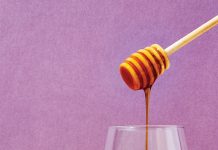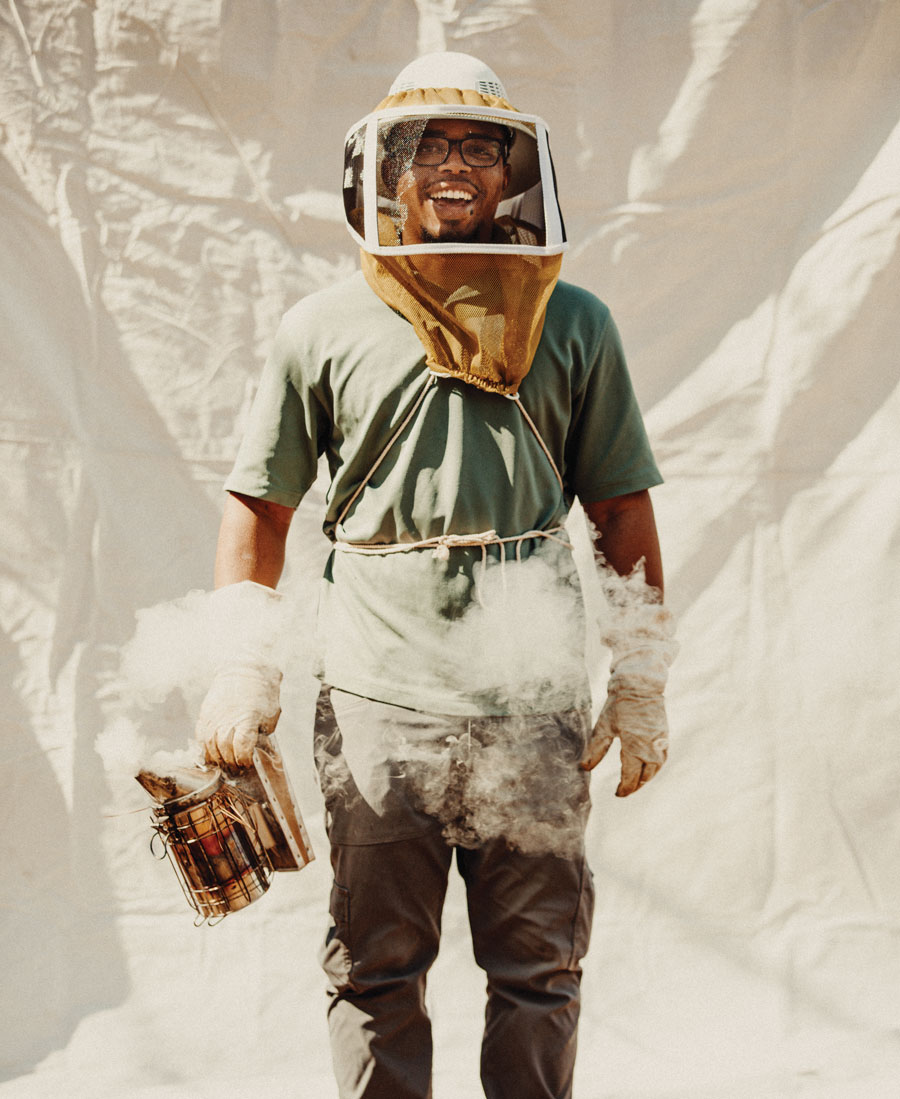
Photograph by Growl
Armond Wilbourn was growing watermelon in Palmetto, Georgia, when he fell in love with honeybees. As pollinators, the insects are essential to farming melon and many other crops, so he purchased two colonies. “And from there, my love for bees just exploded,” he says. He found himself captivated by the bustling creatures’ social behaviors: “The drones, they’re the male bees. They do nothing. They just walk around the hive all day, and every now and then, they’ll mate with the queen.” Last fall, six years after buying his first hives, Wilbourn began bottling his bees’ output and selling it across Atlanta under the label Noble Honey Co.
Unlike honey of the plastic bear variety—which tends to be one-note and cloyingly sweet—Wilbourn’s is raw and unfiltered, with flavors ranging from earthy to floral. He sells three varieties, two of which he produces himself. For his sourwood honey, which has a light amber color and an ever-so-slight tang, Wilbourn moves his hives to the mountains of North Georgia for a couple of weeks in June, when sourwood trees are blooming, and the bees can drink their nectar. His wildflower honey is made from nectar sourced from a variety of flowers, including tulip poplar and gallberry, giving it a balanced sweetness. (Wilbourn gets the third variety, orange-blossom honey, from a small farm in Florida.)
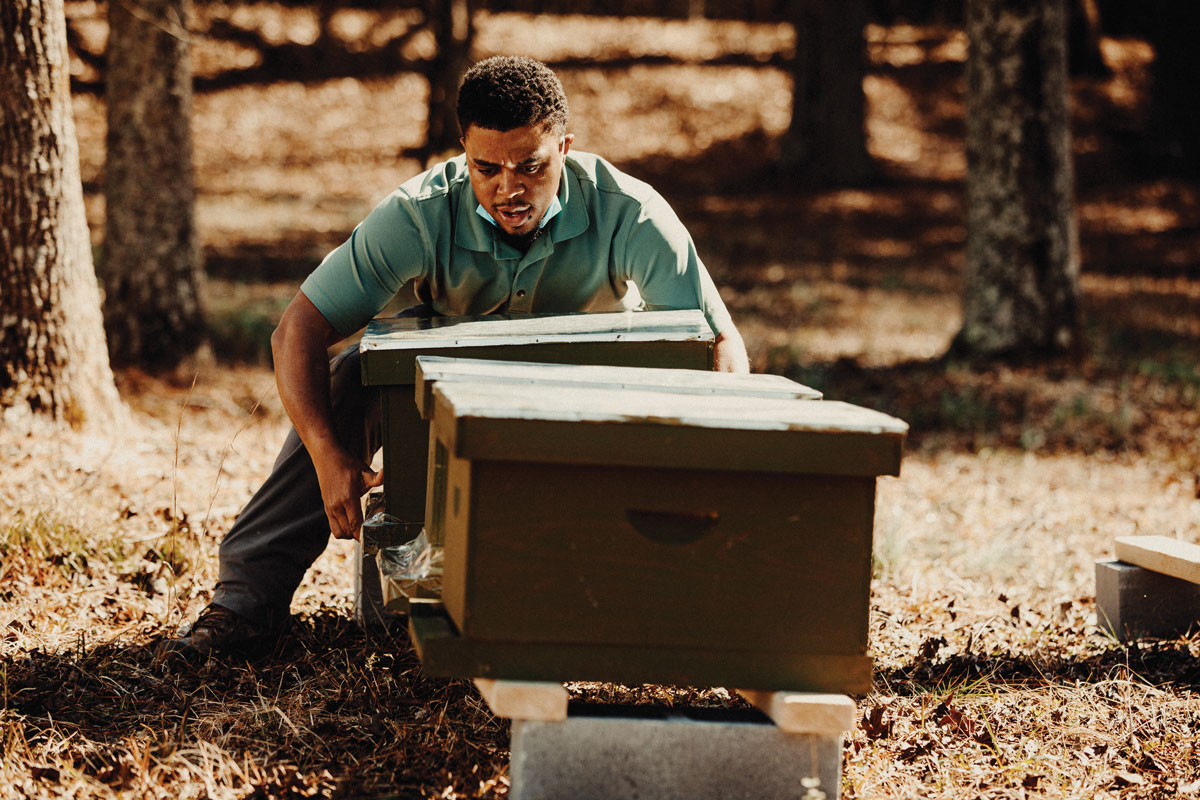
Photograph by Growl
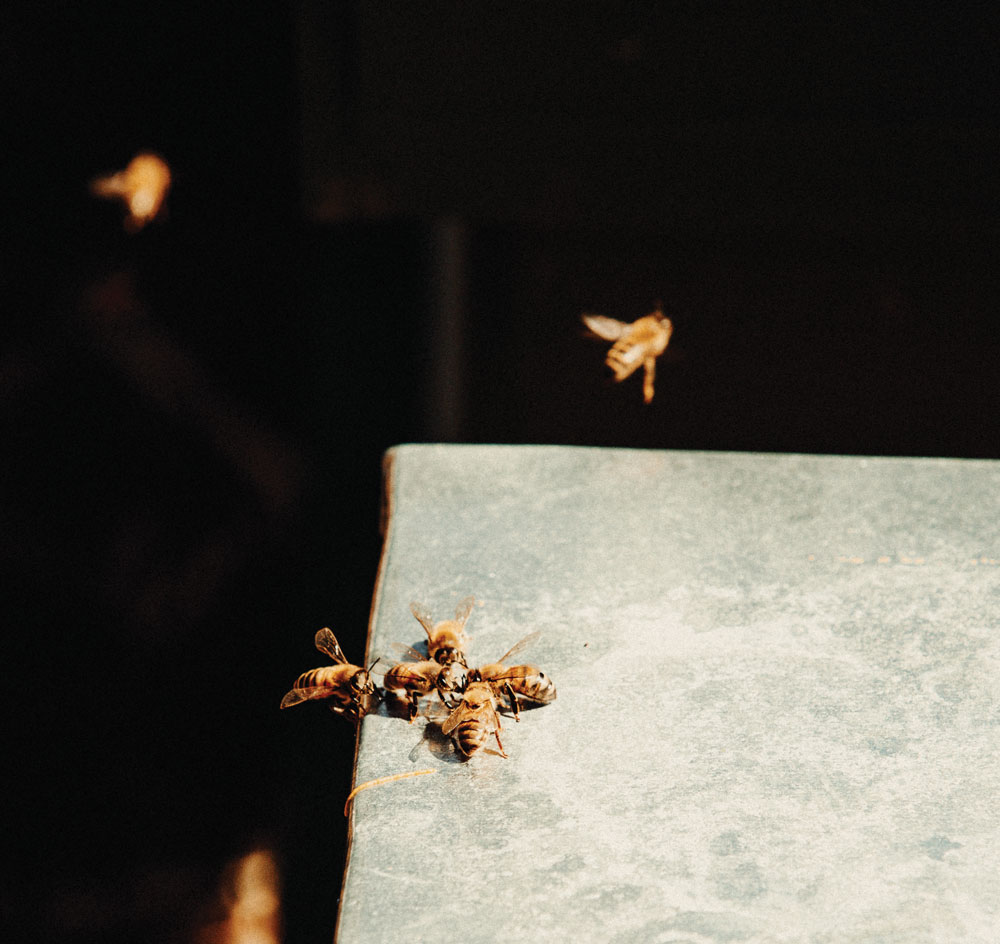
Photograph by Growl
The southwest Atlanta native wants to bring his products to a broader audience, but he also wants to highlight the profession itself. More common 100 years ago, Black farmers lost much of their land over the course of the 20th century as a result of racial discrimination—such that it’s rare to be a Black farmer today, and even rarer to be a Black beekeeper. “There aren’t many,” Wilbourn says. “I tell people I’m a beekeeper and they’re like, beekeeper?” Now 30, Wilbourn decided to take up farming in his early 20s after reading The Hood Health Handbook: A Practical Guide to Health and Wellness in the Urban Community. He was struck by the disparity in food access between communities like affluent, mostly white Buckhead—where there’s a Fresh Market, a Whole Foods, and a Publix within 2.5 miles of each other—and West End, where he learned to farm and where major grocers are fewer and farther between.
“I started realizing, well, we still don’t really have control and access like we would like,” he says. “Why not just start growing it ourselves?” So, Wilbourn began taking farming classes at Truly Living Well, an Atlanta nonprofit that promotes urban agriculture as a means of community empowerment. He realized, too, that he could marry his newfound passion with his natural enterprising spirit. Wilbourn comes from an entrepreneurial family—his grandmother owned multiple businesses, and his aunt Renee Morris acquired the haircare brand Uncle Funky’s Daughter—and he himself has launched various ventures, including ice pop and landscaping companies.
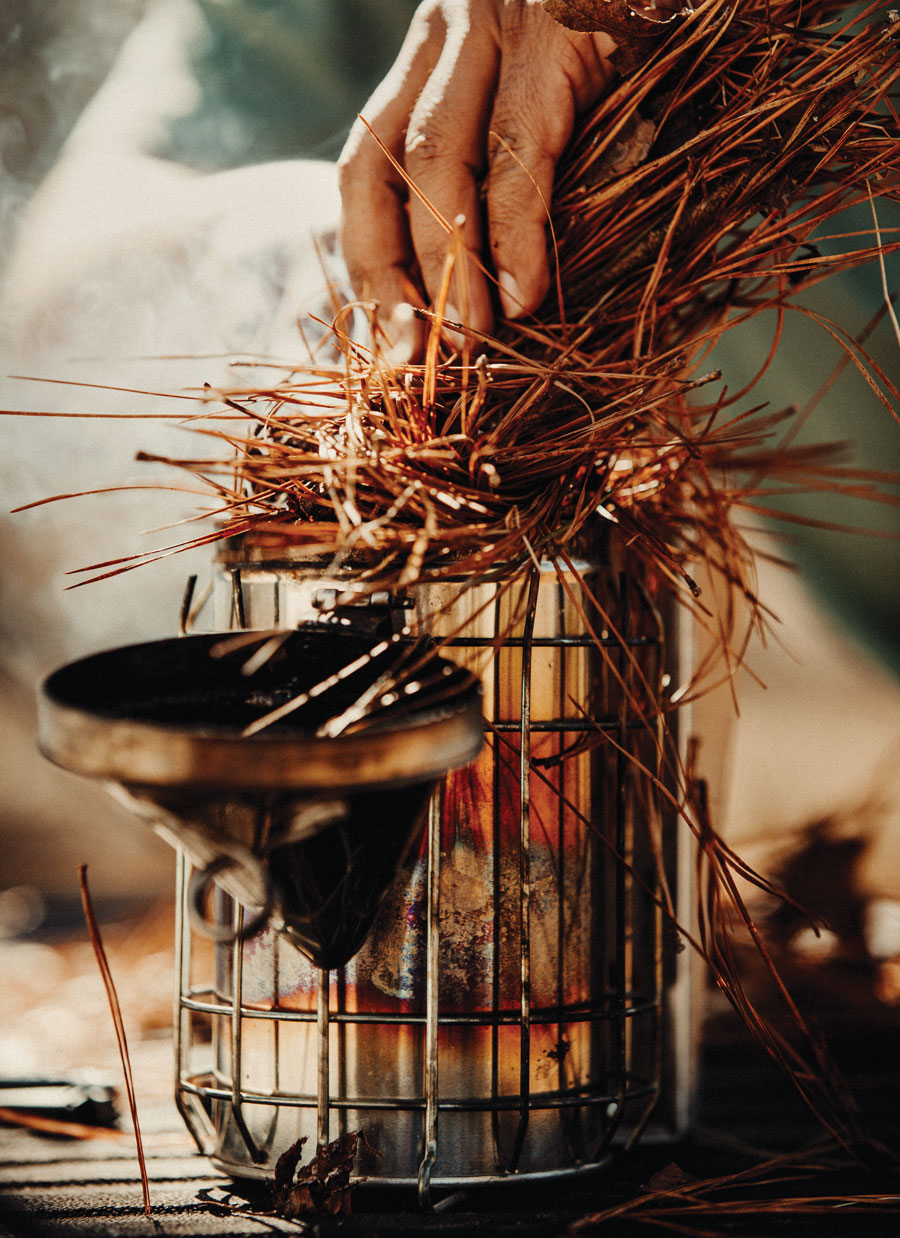
Photograph by Growl
Wilbourn also wanted to demonstrate that being a Black farmer is something to be proud of. “When it comes to us, we associate farming with slavery. And I think it’s a very rewarding job,” he says. “So, I just want to change the image of farming and beekeeping within the African American community.” Farmers produce things people need, Wilbourn says—isn’t that expertise important?
After he got to know his honeybees and saw firsthand how beneficial they are for growing crops, Wilbourn decided to take the next step: He became a certified beekeeper through the Beekeeping Institute, an annual collaboration between Young Harris College and the University of Georgia. In an intensive three-day program, he learned how to handle bees properly, identify bees in various stages, and recognize common diseases. “I must say this: The certified beekeeping test is probably the hardest test I’ve ever taken in my life,” he says. “I passed on the first try, which a lot of people don’t.”

Photograph by Growl
It wasn’t until 2019 that Wilbourn decided to produce honey rather than just keep bees for the farm. As much as he enjoyed it, growing watermelon had its limitations, between the infrastructure required for farming and the relatively low prices the fruit fetched. “With the bees, there’s so many different things I can do,” Wilbourn says. Besides selling jars of honey online and in shops (the Local Exchange in Marietta, Kelly’s Market in Decatur), he’s also in the process of using it to create lip balm and lotions.
Today, Wilbourn lives in Powder Springs, but he stays on the move: He keeps his hives in South Fulton and produces the honey in a shared commercial kitchen near Doraville with equipment that he rents from the Metro Atlanta Beekeepers Association. “I didn’t realize I would love them so much,” he says. “But they’re amazing creatures.”





